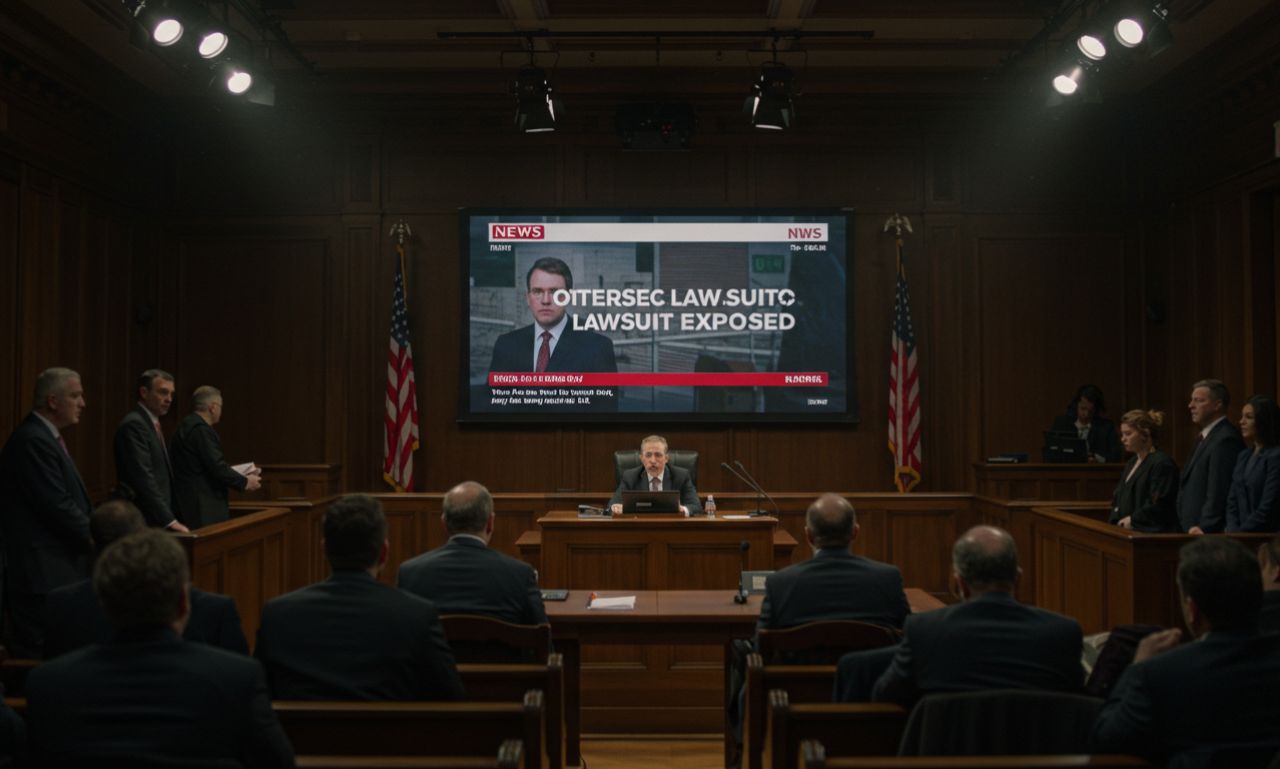The ottersec lawsuit has captured attention in both blockchain and legal circles. As of mid-2025, this case involves allegations of improper company dissolution, misappropriation of assets, trademark misuse, and breach of fiduciary duties. In this comprehensive breakdown, we explore the background, legal claims, court actions, and broader implications for digital security firms.
ottersec lawsuit Background: Who Was OtterSec?
OtterSec was a well-regarded blockchain security firm providing smart contract audits and identifying vulnerabilities in decentralized platforms. Their offerings earned trust among crypto teams and DeFi projects, with the firm portraying itself as a guardian of on-chain TVL and a fix for code risks.
The lawsuit emerged following the death of co-founder Sam Chen and the contested dissolution of OtterSec by the remaining controlling member, Robert Chen. The series of actions that followed became the basis for litigation from Sam’s estate, overseen by Li Fen Yao.
ottersec lawsuit Legal Claims: Estate vs. Robert Chen
Trademark and Lanham Act Violations
The complaint alleges improper use of OtterSec’s name, logo, domain, and social media by Robert Chen and his newly formed LLCs—Otter Audits LLC and RC Security LLC—without authorization. These actions are alleged to violate the Lanham Act under 15 U.S.C. § 1125(a).
Improper Dissolution and Asset Misappropriation
OtterSec was dissolved shortly after Sam Chen’s death. Sam’s estate argues this dissolution was invalid and executed without proper process or consideration of the estate’s interests, including shifting business, assets, and operations to the two new LLCs Robert created.
Breach of Fiduciary Duties
The estate claims Robert breached fiduciary duties in two ways: failing to disclose acquisition negotiations with Jump and orchestrating dissolution to exclude the estate. The court, however, only allowed the claim related to non-disclosure of the Jump discussions to proceed; other fiduciary duty claims, especially toward the estate, were dismissed for lack of statute-based standing.
Fraud and Misrepresentation
Alleged misrepresentations include withholding material information about the potential acquisition before agreement transfers and the dissolution. The court found the allegations sufficient to support the fraud claims and refused dismissal on this ground.
Breach of Contract
Sam’s estate alleges that the dissolution violated terms of OtterSec’s operating agreement, including prohibitions on dissolving the company under specified conditions. The court allowed such breach of contract claims to proceed, including claims based on anticipatory repudiation.
Conversion and Tortious Interference
Claims of misappropriation or conversion of intangible estate interests in OtterSec were dismissed due to failure to assert tangible documentation of property interest. Similarly, tortious interference claims were dismissed for being derivative and improperly pleaded.
ottersec lawsuit Court Developments: Case Progress
Jurisdiction and Venue
Multiple lawsuits have been filed in both Maryland and Wyoming federal courts. The Maryland case focuses on the estate’s claims, while Robert filed a separate suit against David Chen in Wyoming. Motions to transfer, dismiss, and combine proceedings are ongoing.
Rulings
-
Some fiduciary and derivative claims were dismissed, while direct claims—like fraud and breach of contract—remain.
-
Fraud claims survived due to sufficient allegations.
-
Trademark claims under Lanham Act are ongoing.
-
The court acknowledged that jurisdiction over these matters in Maryland is appropriate given jurisdictional contacts.
ottersec lawsuit Implications for Blockchain Security
Erosion of Trust in Auditing Firms
OtterSec’s fall from grace signals growing legal risks for blockchain security firms. If audit firms face lawsuits over alleged negligence or bad faith, their credibility and client trust may suffer—even before injunctions or verdicts.
Legal Precedents
The case could establish important precedents around fiduciary duties, LLC operating agreements, ownership interests inheritance, and post-death dissolution in tech startups.
Business Strategy Lessons
The dispute highlights the importance of transparent governance, clear succession planning, and proper dissolution procedures—especially in founder-led fintech or crypto ventures.
lawsuit Broader Takeaways
-
Due Diligence for Investors and Clients: Vet audit firms beyond reputation—ensure governance structures, ownership clarity, and contingency planning are in place.
-
Contracts Matter: Operating agreements should clearly outline member rights during dissolution and death scenarios.
-
Legal Preparedness: Entrepreneurs and startups must anticipate and prepare for post-founder changes—especially in decentralized or co-founder models.
-
Regulatory Awareness: While still within private litigation, this kind of case can prompt regulatory and compliance questions for blockchain industry players.
Conclusion
The ottersec lawsuit presents a cautionary tale at the intersection of legal complexity and blockchain innovation. It involves trademark disputes, allegations of fraud and breach of contract, and procedural battles across jurisdictions. As this case unfolds, both crypto entrepreneurs and legal professionals will watch closely—its outcome could reshape trust models and governance norms in the emerging Web3 space.
